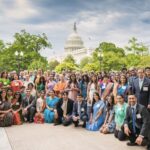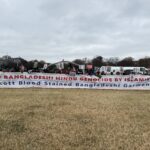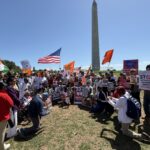The Coalition of Hindus in North America (CoHNA) held its 4th Annual Hindu Day of Advocacy on July 22, 2025, at the U.S. Capitol, bringing together lawmakers, community leaders, and advocates to highlight growing Hindu American visibility and concerns. The event served as a platform to “showcase and advocate Hindu pride” and raise awareness on issues impacting Hindus globally.
“This year, our presence fills us with hope and strengthens the voice of Hindu American community,” said General Secretary of CoHNA, Shobha Swamy. She emphasized the momentum the organization is building year after year. Swamy also called for a minute of silence in memory of the victims of the recent Pahalgam attack, as well as Hindus persecuted in Bangladesh and elsewhere.
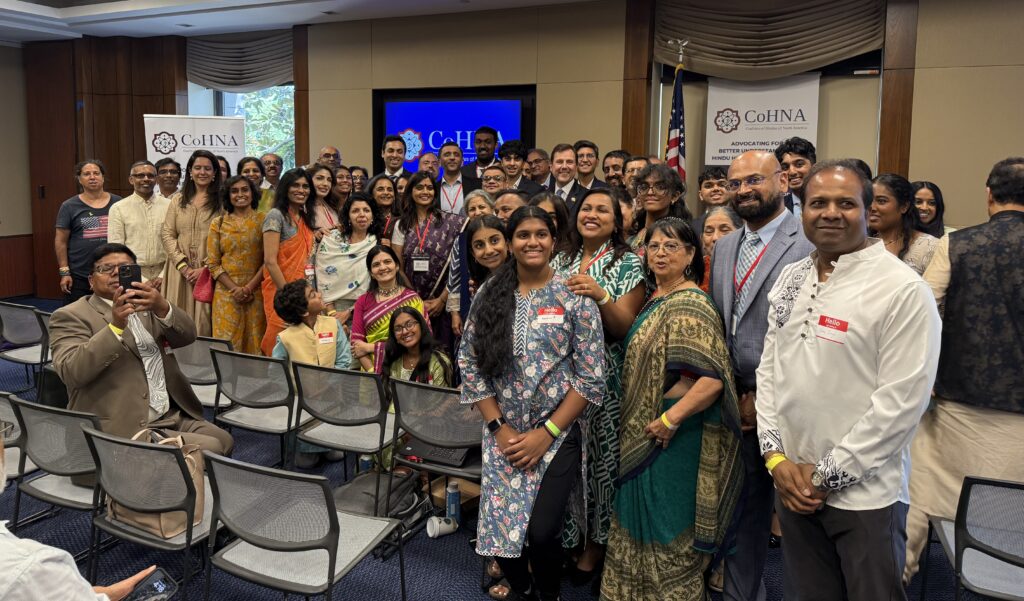
In his remarks, President of CoHNA, Nikunj Trivedi, reflected on the organization’s journey since its founding in April 2020 during the COVID-19 pandemic. “This is indeed a proud moment,” he told the gathering noting the upcoming five-year anniversary celebration. CoHNA will host a grand gala in New Jersey on September 20 to mark the milestone and outline future plans, he said.
Trivedi also highlighted the historical contributions of Hindus in the United States, dating back to the 19th century, long before the tech industry boom. “Like many other communities… we did our work that we continue to do, and we have risen up in the in the echelons of the society very rapidly.”
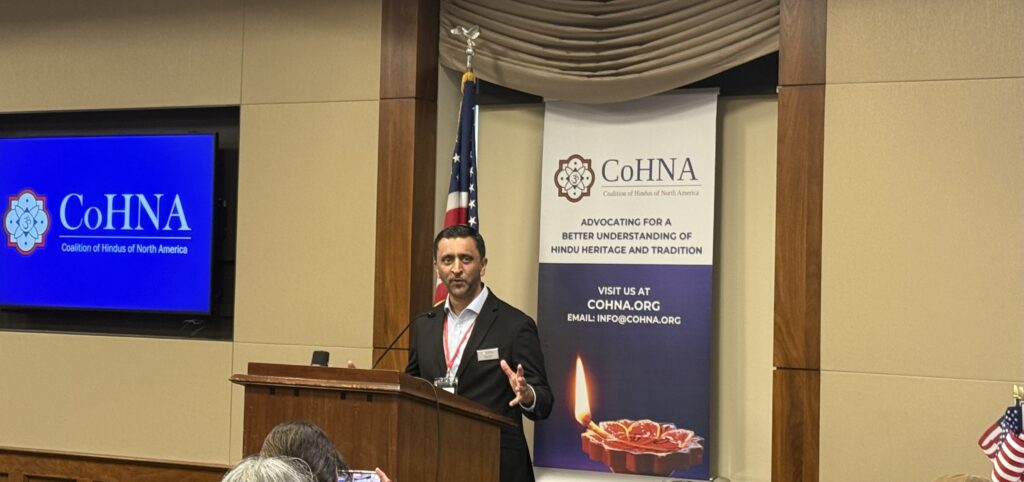
He emphasized the importance of advocacy, calling CoHNA’s grassroots mobilization its “biggest achievement” to date. Among the accomplishments he cited was CoHNA’s successful effort to help pass the first-ever County Resolution in Georgia condemning Hinduphobia and anti-Hindu hate in March 2023.
Several members of Congress participated in the event, voicing support for the community and shared values.
Congressman Dr. Rich McCormick of (GA-7) spoke about the strong relationship between former President Donald Trump and Indian Prime Minister Narendra Modi, praising the U.S.-India partnership.
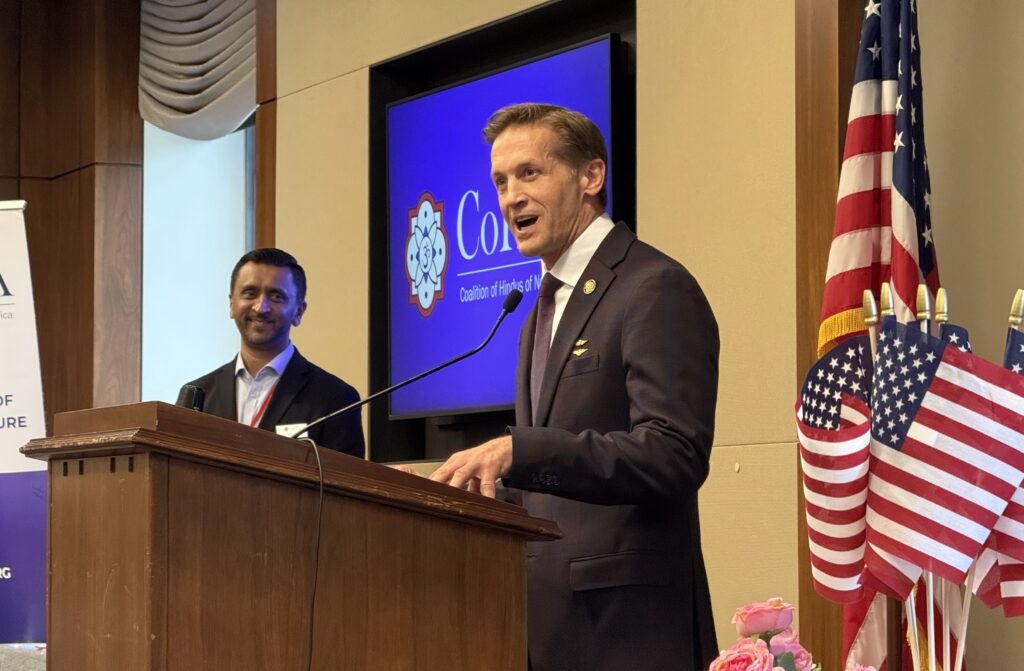
“We build an economy based on a similar constitution. We’re doing this together, and that’s why I’m here. Because I am your friend. I am your family, and together we will triumph,” he said.
Congressman Shri Thanedar (MI-13) underscored the vital contributions of immigrants to the United States. “America cannot be great without the immigrant population,” he stated.
Addressing the rise in hate crimes against immigrant communities, he noted his efforts to introduce legislation aimed at protecting them. He also reiterated his call for the Biden administration to impose sanctions on Bangladesh in light of ongoing human rights violations.
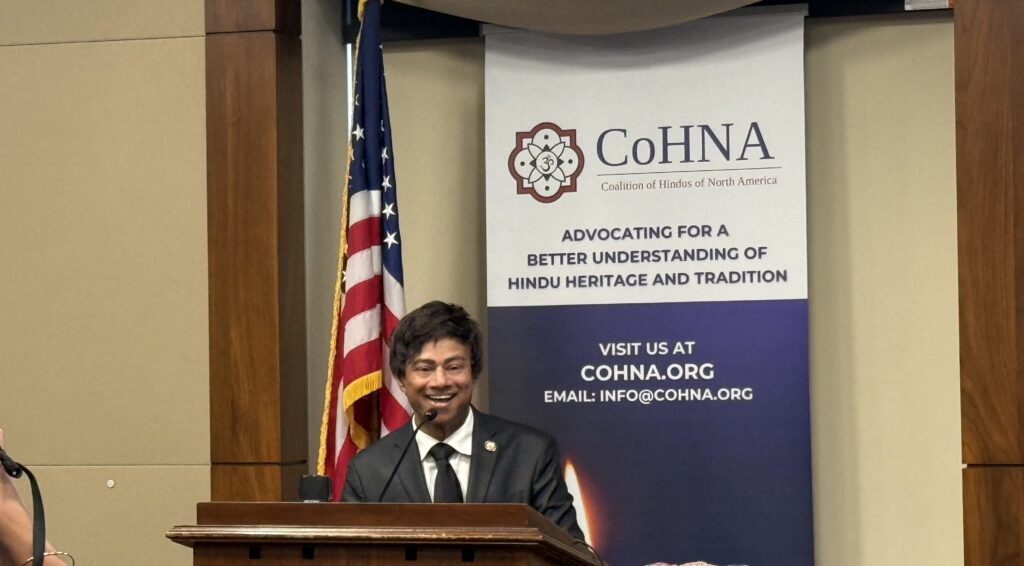
Congressman Suhas Subramanyam (VA-10) encouraged young attendees to be proud of their identity. “There is no need to apologize for being Hindu,” he said.
“I always tell my non-Hindu friends in the U.S. that you don’t know much about Hinduism, but you’re probably already practicing it,” he said citing yoga, meditation, mindfulness, and ancient scriptures.
Pointing to human rights issues all across the world, he said “We certainly want to make sure that we are championing Hindus here and abroad and their rights.”
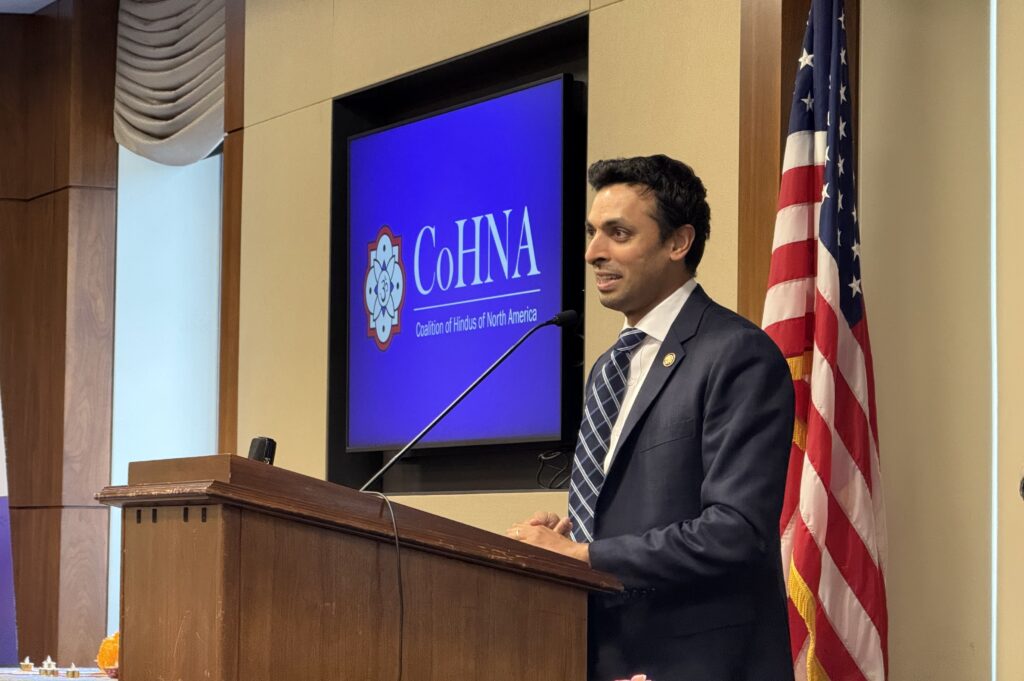
Congressman Andrew Clyde (GA-9) reinforced the American commitment to religious liberty. “We have the freedom and the liberty to worship as we choose, and that is respected in this United States, regardless of who you are or what you believe,” he said.
Chief Communications Officer at CoHNA, Pushpita Prasad, noted that despite being one of the world’s major faiths, Hinduism remains a minority religion globally and is vulnerable in many parts of the world.
“We are a minority faith in the United States, in Canada, in almost every part of the world, other than India and Nepal,” she said.
She expressed concern over the targeting of Hindu temples in the U.S., with six attacks reported in the last 18 months. “Where is the freedom of religion?” she asked, invoking the U.S. Constitution’s foundational promise.
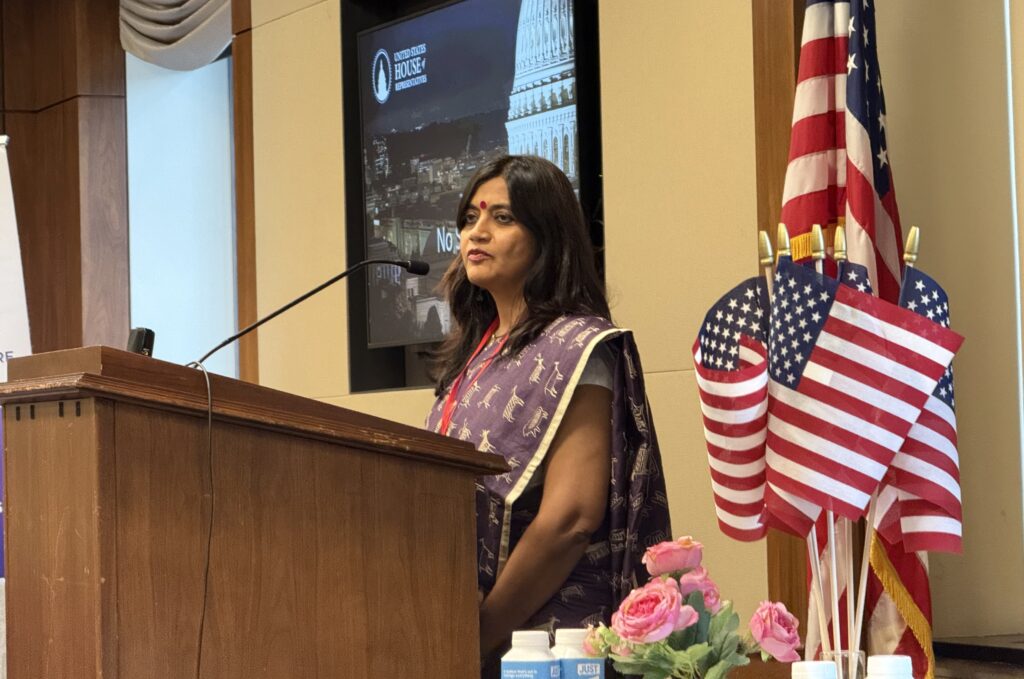
Mohan Sapru, U.S. Coordinator for the Global Kashmiri Pandit Diaspora, addressed the Pahalgam terrorist attack and ongoing persecution of Hindus in Bangladesh. He criticized the media and political narratives that “sanitize terrorism” and questioned attempts to distinguish between “bad terrorists” and “good terrorists.”
He emphasized Kashmir’s historical and spiritual significance for the Hindu community, tracing religious persecution back to the 13th century. The Kashmiris see it as “their motherland,” where their “ancestors were buried,” according to him.
Richard Benkin, author of “A Quiet Case of Ethnic Cleansing: The Murder of Bangladesh’s Hindus,” called on U.S. policymakers to act urgently. “If United States does not act and does not act now, we will fail to our own detriment, as well as to the detriment of our Hindu brothers and sisters in Bangladesh,” he cautioned.
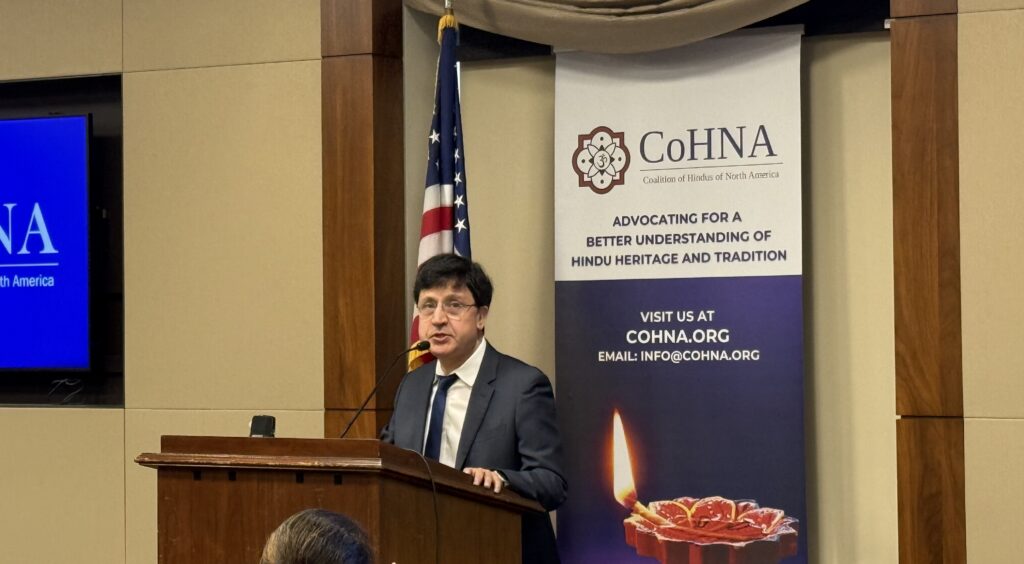
He accused various global institutions, including intelligence agencies, media, governments, and the UN, of remaining silent despite clear evidence of crimes. Benkin praised Donald Trump for being the only major leader to condemn anti-Hindu violence in Bangladesh and referenced India’s Citizenship Amendment Act of 2019 as a rare policy stand on the issue.
Krystle Kaul, a former congressional candidate from Virginia’s 10th District, described the event as “timely,” given the recent terrorist attacks in Pahalgam and the U.S. screening of The Bengal Files. She stressed the importance of self-advocacy, especially for communities that are often underrepresented. “Certain voices get hidden or get overshadowed simply because certain groups just don’t advocate enough for themselves.”
Bhavini Patel, former congressional candidate from Pennsylvania’s 12th District, cautioned against rising faith-based hate. “Religious identity, something that’s meant to uplift, connect and ground us, is being weaponized and distorted,” she said. “For many in our Hindu community, this anti-faith sentiment has taken the form of anti-Hindu hate, targeting our temples, misrepresenting our traditions, and vilifying our presence.”
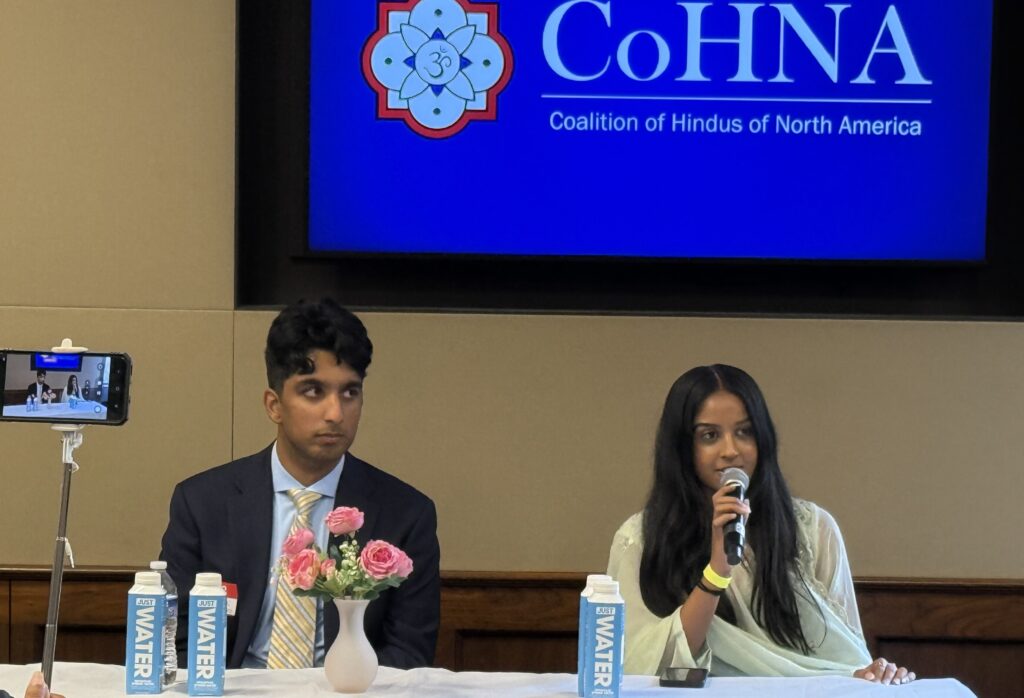
Staff members from the offices of Congressman Sanford Bishop (GA-2) and Congresswoman Haley Stevens (MI-11) also delivered remarks.
Additional speakers included Professor Lee Jussim, a social psychologist from Rutgers University, who addressed how DEI rhetoric around caste and race can unintentionally breed division. A student panel featuring Maana Kolagatla, a rising junior at UC Berkeley, and Shyam Kumar, a rising junior at Rutgers University, also shared perspectives on youth advocacy and identity.



